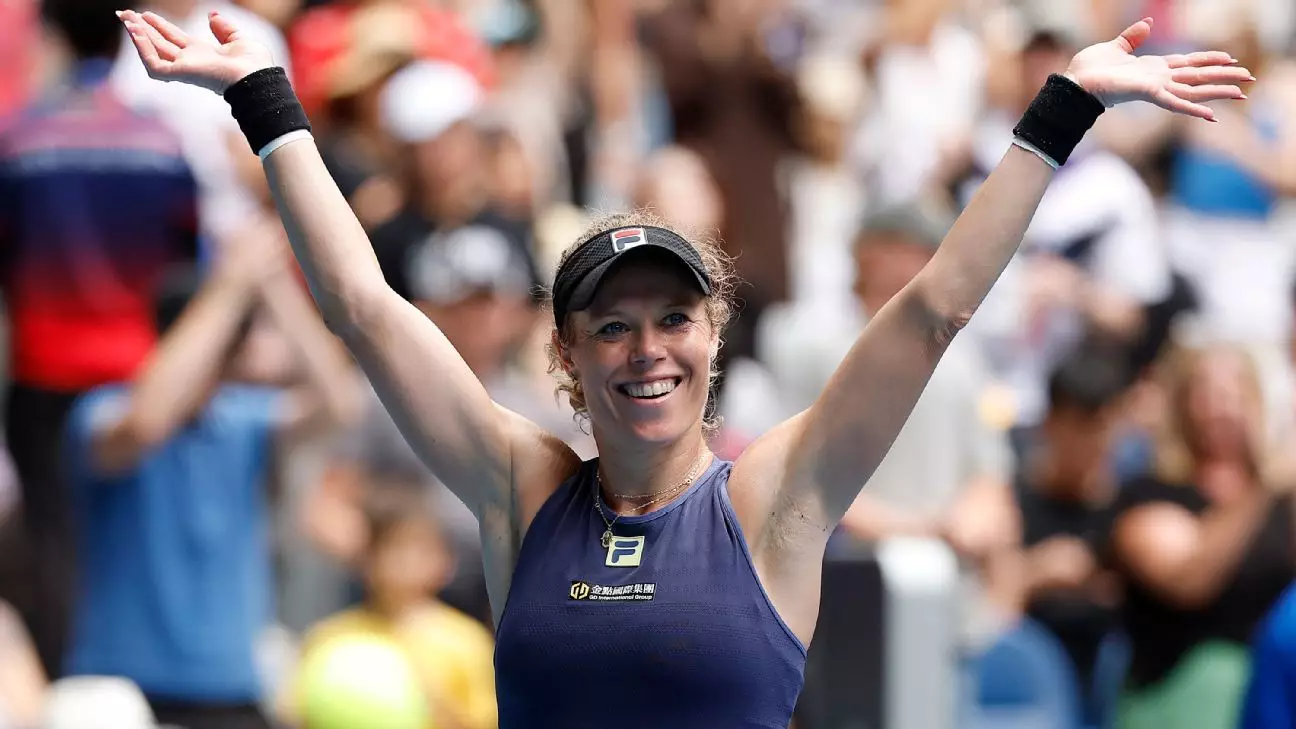The Australian Open often serves as a significant stage for tennis players to kick off their year, and for Qinwen Zheng, last year’s runner-up, expectations were high as she entered the tournament. After an impressive 2023 season, which saw her clinch Olympic gold in Paris and reach the finals of the WTA, fans were eager to see how Zheng would perform against lower-ranked opponents. However, her second-round encounter against Laura Siegemund aimed at a stark contrast to the expectations set by her previous accomplishments. Instead of a triumphant continuation of her career, Zheng faced a disheartening 7-6 (3), 6-3 loss, marking an unexpected early exit from the tournament.
Laura Siegemund, currently ranked No. 97, exploited every opportunity while demonstrating a fierce and aggressive style of play. At 36 years of age, she embodied experience and precision, proving that age can be an asset rather than a liability on the court. Siegemund managed to assert control in the match right from the first point, putting Qinwen off her rhythm. Her performance underscores a fascinating narrative in professional sports: rising above one’s perceived limitations. Siegemund’s victory not only highlighted her talent but also marked her status as the third-oldest player to defeat a top-five competitor at the Australian Open in the past three decades, with the accomplishment emphasizing that competitive fire doesn’t fade with age.
Zheng’s match was characterized by slips in focus and adherence to her game plan, ultimately costing her critical points. In particular, a disrupted moment came when she received a time warning from the chair umpire, leading to an unfortunate serve that failed to clear the net. Zheng’s comments highlight the psychological challenges athletes face in high-pressure scenarios. She expressed that, “I feel maybe today is not my day,” revealing a sense of frustration as she struggled to convert opportunity into points. These subtle details can dramatically alter the outcome of a match, especially when faced against an opponent who asserts dominance early on.
The match serves as a reminder for Zheng that consistent pressure from opponents and an ever-changing dynamic on the court require adaptability and resilience. While she acknowledged her opponent’s skills, her lack of aggression, particularly in crucial moments, played a significant role in denying her chances. “I didn’t do the right choice,” she said, reflecting awareness of her missteps. This acknowledgment suggests a level of maturity that can benefit her career moving forward, as learning from failures will be key to overcoming hurdles.
On a parallel court, Aryna Sabalenka, the reigning champion and second time titleholder, demonstrated why she continues to hold the top rank. Sabalenka’s victorious match against Jessica Bouzas Maneiro ended with a scoreline that belies the struggles embattled during the contest. Bouzas Maneiro showcased her talent, but Sabalenka capitalized on break point opportunities, emphasizing how essential mental toughness and adaptability are in tennis.
While this match was undoubtedly an early setback for Qinwen Zheng, it also serves as a critical turning point. Whether it be adapting her strategy against unexpected opponents or honing her response to distractions, Zheng’s path forward can only benefit from this experience. Siegemund’s triumph not only disrupts the narrative of youth prevailing but also stands as a welcome reminder of the fierce competitiveness that characterizes the sport, making the journey to greatness a multi-faceted endeavor. For Zheng, the challenge will be to regroup and rise stronger as the Australian Open continues, turning lessons learned into pivotal experiences that shape her future in the sport.

